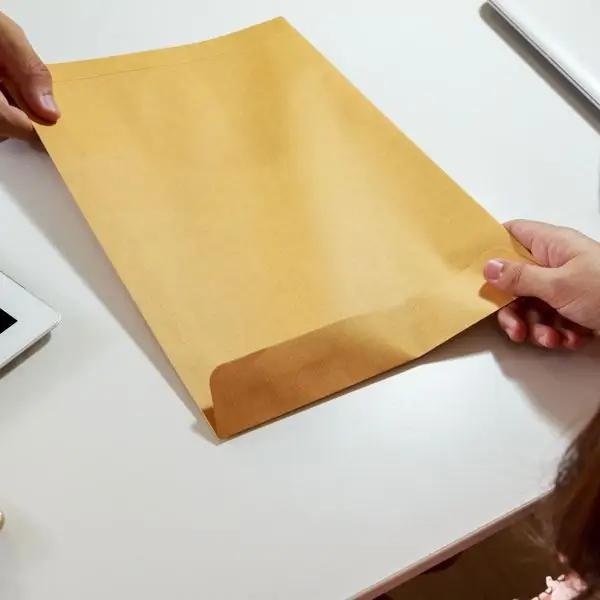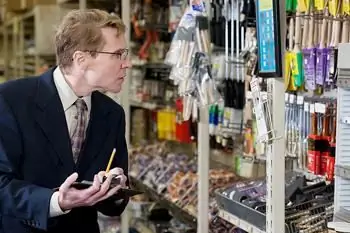2026 Author: Howard Calhoun | calhoun@techconfronts.com. Last modified: 2025-01-24 13:10:37
Inventory of waste emissions into the atmosphere is a set of activities that are carried out by nature users, including systematization of data on pollutant emissions, identification of their location, determination of emission indicators. Read more about how this process goes and how the act of inventory of emission sources is filled out.
Terminology
Stationary source of emissions are any sources of pollutant emissions located on the territory of the inspected enterprise. They are conventionally divided into two types:
- organized (emission is carried out through gas ducts and pipes);
- fugitive (emission enters the atmosphere as a result of equipment malfunction).

The last category also includes used vehicles, tank farms,railway and road overpasses.
Goals
Inventory of sources of emissions into the atmosphere is carried out with the aim of:
- defining emission standards;
- assessment of technological processes for their compliance with requirements;
- comparison of emission values with the requirements of regulations;
- formation of databases of sources of emissions of substances.
The process itself is carried out in accordance with the Federal Law "On the Protection of Atmospheric Air". Under this law, organizations that have sources of pollutants are required to: control emission sources, ensure verification and participate in the development of acceptable standards.
Inventory tasks
- Classification of pollution sources.
- Determination of the quantitative content of pollutants (Pollutants).
- Assessment of the impact of emissions on the environment.
- Determining the cleaning efficiency level.
- Identification of the characteristics of the resources used by the enterprise.
Inventory is carried out by all enterprises whose work is related to the emission of waste. During the inspection, you should consider:
- main sources of emissions at the production site;
- objects of gravitational sources;
- all pollutants;
- archived data from previous checks.

Timing
The organization conducting the inspection must comply with current regulations. If the work is carried out byown division, then you do not need to issue a license to conduct them. An inventory of air emission sources for new, modernized sources should be carried out every two years from the date of issue of documentation for the equipment. For current emission sources 1 time per:
- 4 years - for objects assigned to the 1st category;
- 5 of the year - for objects classified in the 2nd and 3rd categories;
- 6 years - for objects of the 4th category;
- 10 years - for objects of the 5th category.
Mobile sources of pollutant emissions, as well as facilities equipped with an automated control system that are under conservation, are not subject to verification.
Steps
Verification is carried out in the following sequence:
- preparation;
- examination;
- receiving and processing results.
Let's consider each of the stages in more detail.
Documentation
Before an inventory of pollutant emission sources is carried out, an organization must:
- adjust the ventilation system and issue a passport for it;
- equip the selection points according to the requirements of regulatory enactments;
- prepare a certificate on the methods of managing technological equipment;
- prepare statistics on annual production, quantities of all types of raw materials and excipients consumed.
Supplied with help:
- data on chemical reactions;
- process diagrams;
- start and output orderequipment;
- other documentation needed to understand all aspects of operation.

Preparation
At this stage, it is necessary to perform a number of activities:
- Develop a program of work. This task lies with the head of the environmental service and representatives of the organizations involved in the process.
- Issue an inventory order, a sample of which will be presented below. It indicates the persons responsible for conducting the audit in the whole organization and in a specific unit.
- Examine project documentation for raw materials used in production. Specialists must identify pollutants released in the process. To do this, they get acquainted with the results of previous inspections of raw materials and equipment. All documentary materials are provided to the head of the service in agreement with the engineer.
- Visually check the gas control units (GOU), determine the location, size, location, direction of emissions. Based on the results of the inspection, the scope of work, the duration of their implementation, the necessary provision in the form of sampling points and measuring instruments are determined.
- Assess the condition of ventilation systems, GOU.
According to the results of the check, an inventory act is drawn up, the form of which can be obtained from representatives of the environmental service. It concludes on the performance of the equipment. The document is signed by members of the commission. If any deviations are detected, the employees of the organization under the guidance ofmechanics (energy) and the control of an employee of the environmental service perform work to eliminate them. Then a re-inspection is carried out. If the work cannot be completed by the deadline, then they are included in the act of inventory of emission sources. The document indicates the deadlines, fixes the need for re-examination and current measurements.
Inventory Order Sample
ABC LLC
g. Moscow 21.12.2016
Order
about taking inventory
To carry out the verification _ a commission is appointed consisting of:
Chairman: Full name Employee Signature
Commission members: Full name employees Signatures
To be verified _.
Inventory start on 2016-20-12 and end on 2016-25-12
Materials on the inventory should be handed over to Rosprirodnazor by December 28, 2016.
Head Ivanov I. I.

Examination
At this stage, carry out:
- Aerodynamic tests of the GOU in accordance with the accepted GOSTs.
- Collection of emission samples, their analysis for the content of pollutants. For this purpose, a minimum of six control samples are carried out during the period of the technological process. In the event of emergencies that may affect the composition of emissions, additional tests are carried out.
- Determine the efficiency of the GOU by recording readings in work logs.
Organizations that useequipment located in different parts of the city, draw up an act of inventory of emission sources separately for each facility. The amount of emissions is determined based on information on fuel consumption and operating time of pollutant sources for the previous year.
Inventory of sources of pollutant emissions provides for an assessment of the category of impact of objects on the air. This process can be carried out according to the results of the last check:
- for objects assigned to groups 4 and 5 with the value of the object hazard indicator less than 0, 1, refined pollutant calculations are carried out, their quantitative and qualitative composition is established;
- For objects classified in groups 1-3 with a hazard indicator value of the object of more than 0, 1, balance diagrams of energy flows are compiled for the previous year, indicating the amount of raw materials used, electricity, fuel, the amount of manufactured products.

Also in the process, the coordinates of sources of release of substances are determined. License plates corresponding to the map of the production site are applied to the objects. They are assigned once and do not change on subsequent checks.
Organized sources are numbered 0001-5999 and unorganized sources are numbered 6001-9999. Separately, the sources of pollutant emission are selected and studied, the calculation of which is carried out by instrumental-calculation methods, and the GOC on which they are formed. During the verification process, the geometric parameters of the emissions are determined. The calculation is carried out under the conditions of scheduled loading of equipment, taking into account operating modes and under normal operating conditions.
Filing results
At the final stage, the test results are systematized, the results of equipment checks are drawn up, the test certificates and the act of inventory of emission sources are filled out. Documents are drawn up in two copies. Additionally, an explanatory note containing emissions calculations is attached. Copies of documents are sent to the department of Rosprirodnadzor. The commission either confirms the results of the check, or sends a list of comments, after the elimination of which a conclusion is issued.
Results processing includes:
- formation of a table with a list of parameters and their characteristics;
- systematization of test results, calculation of mass release of all substances;
- determination of the impact of stationary sources of emissions into the atmosphere by summing the effect of all pollutants;
- preparation of new maps of surface concentrations of summation groups, at the production site and in the area of its location.

Schemes of summation groups are drawn up on a scale of 1:25000, the production site - 1:500. At the same time, they should have the following designations:
- cardinal directions;
- given coordinate system;
- hulls and buildings, parking lots of vehicles, roads;
- site boundaries;
- numbers and boundaries of emission sources;
- borders of residential andsanitary protection zone.
Make changes
During the validity period of the act, developers must correct the results of the check for individual sources of pollutants if:
- there have been changes in production technology, the quality of the fuel used;
- reconstruction and repair of equipment;
- Additional sources of pollutant allocation have appeared;
- unaccounted operating modes are set;
- changing the location of the equipment resulted in an increase (by 10% or more) of qualitative and quantitative characteristics;
- new acts regulating the procedure for determining emissions have come into force.
Adjustment of the results is carried out within six months of the occurrence of these circumstances.

Responsibility
For violation of legislation in the field of atmospheric air protection, the perpetrators bear the following responsibility:
- Concealment, distortion, untimely provision of complete information about the state of the environment, sources of pollution, radiation situation, state of land, water bodies entails a fine of 500-1000 rubles (for citizens), 1-2 thousand rubles. (for officials), 10-20 thousand rubles. (for legal entities).
- Illegal emission of harmful substances into the atmosphere entails a fine of 2-2.5 thousand rubles. (for citizens), 4-5 thousand rubles. (for individual entrepreneurs), 40-50 thousand rubles. or suspension of work for 90 days (for legal entities).
- Violation of the terms of implementationemissions entails the imposition of a fine in the amount of 1.5-2 thousand rubles. (for citizens), 3-4 thousand rubles. (for officials), 30-40 thousand rubles. (for legal entities).
Recommended:
Courier documents: individual order, invoice, order form, document delivery rules and courier working conditions

Working in the delivery service is very popular today, especially among ambitious young people. A courier is not just a person delivering parcels, but a trained specialist who has certain skills and can bring a parcel or correspondence to the specified address with high quality and promptly
Commission trading. Rules for commission trade in non-food products

The legislation of the Russian Federation regulating commercial relations provides for the possibility for stores to sell goods through commission trade. What are its features?
Order to reduce staff: sample drafting, draft and form. How to draw up an order to reduce the staff?

In a difficult financial situation, an enterprise is sometimes forced to carry out a special procedure, at the initial stage of which an order is drawn up to reduce staff. A sample of such a document must correspond to a certain form and take into account all the subtleties of labor legislation
Inventory in a pharmacy: procedure, documents, composition of the inventory commission

Inventory is the verification of a firm's inventory on a given date by comparing actual data with balance sheet information. This is the main way to control property values. Read more about how inventory is carried out and processed in a pharmacy, read on
Inventory - what is it? Goals, methods and types of inventory

Inventory is an inventory of property designed to identify discrepancies between the actual number of valuables and the information contained in the company's internal documentation. The article lists the main varieties of such a check. The procedure for conducting an inventory is given

